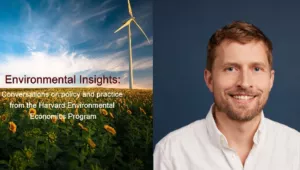Introduction
A disproportionately large amount of the world's agronomic potential for the production of bio-ethanol is concentrated in a subset of developing countries. This phenomenon represents a rare opportunity to help countries that rank among the poorest in the world to make progress towards industrialization and export-led growth. The list of potential biofuel competitors includes small, tropical economies where the current denominator of total exports is low, so the development of even a small biofuel industry could represent a large proportion of exports. By creating demand for relatively complex inputs and capabilities, the industry's development may also make it easier for these countries to develop other more sophisticated industries in its wake. The emergence of a biofuels industry, therefore, may not only be meaningful for global energy supply, but may also promote the competitiveness of some of the world's most vulnerable communities.
This opportunity is being threatened, however, by the complexity of the coordination challenges, like standardization and the building of an integrated supply chain, as well as by the large number of policy priorities that are shaping the industry's emerging structure. This paper will discusses all these tensions in the context of the international policy debate.
Creating a viable global biofuels market depends on a range of both local and global policy inputs. Translating the biological potential for biofuels into an economically exploitable opportunity requires a business ecosystem that provides the intermediate inputs and market structures that maintain the private cost of production below the sale price. Since this complex network of requisite conditions - infrastructure to connect agricultural land with ethanol processing plants, a logistic system to move the ethanol to port or to market, ports that can handle ethanol, a car fleet that can use the ethanol, refineries that mix ethanol with gasoline in known ratios, a network of service stations that sell the mix, etc. - can neither be developed quickly nor provided by a single firm, it is crucial to coordinate entrant entrepreneurs by providing certainties.
At the local level, these industry dynamics imply an organization of buyers and some basic complementary inputs. Some of these inputs are privately provided, but many others are in the purview of the public sector, such as infrastructure or standards. Ensuring that these are provided simultaneously represents a coordination problem that requires policy action.
At the global level, given the large scale of potential production relative to the size of domestic markets and given potential hold-up problems between producers and local distributors, reliable global market demand is needed in order to trigger large bioenergy investments. Global certainty is particularly important for biofuel entrepreneurs. The only fully scalable carbon-saving production technology available that is profitable at around US$ 60 per barrel - sugarcane ethanol - requires comparatively large investments in local processing compared to other well developed agricultural-based industries like wheat or soybeans, increasing the salience of potential market failures in its development. A global market is critical to ensuring demand and to giving producers an outside option.
But it is not yet clear how this market will function. The market's structure is being shaped haphazardly by a series of different and sometimes conflicting policy goals. For example, biofuels have been affected by agricultural policies in developed countries focused on increasing local farm incomes by restricting supply and raising domestic prices. One implementation of this policy is the American US$ 0.54 per-gallon tariff on imported ethanol, which makes imports unfeasible at all but the very high oil prices seen briefly in 2008. The opposite policy goal - that of keeping food prices low - has also been a consideration regarding biofuels policy, as many fear that increased competition for arable land would raise food prices and deteriorate the living standards of the urban poor. One implementation of this policy is to stop the promotion of biofuels, as suggested by some specialists in the press, especially during the food price spikes of 2007-2008.
At the same time, biofuels are seen as a potential substitute for imported fossil fuels and are being encouraged in some developed countries for energy security reasons, since they would reduce dependence on failed or potentially hostile oil-rich states. Through this lens, Brazilian sugarcane farmers would be competing with Iranian and Russian oil magnates, not Iowa corn farmers.
Environmental goals are also a primary factor in the industry's emergence, but leveraging biofuels to advance these goals is not clear-cut. First, some biofuels have the potential to lower greenhouse gas (GHG) emissions, because the carbon their combustion releases is offset by their capture of CO2 through photosynthesis. But not all biofuels are created equal. Some have large reduction effects, while others have small or adverse effects. Moreover, CO2 is not the only GHG, and agriculture may generate others such as methane and nitrous oxide. A policy to reduce GHG emissions would need to distinguish between them, but this cannot be done by just looking at the chemical composition of the final product. Hence, some form of certification would be needed. Second, GHG emissions are not the only environmental goal. Agriculture disturbs the environment through deforestation, chemical pollution of land and water and a reduction in biodiversity, among other ways. Hence, a policy to encourage biofuels would expand the agricultural frontier and thus affect the environment.
This paper engages this discussion with two central goals: first, to compile a set of principles to guide the design of a global biofuels market that reconciles industrial development with the other policy goals around the industry and, second, to offer practical implications that ground these principles in the landscape of the current policy discussion.
We seek to contribute to this discussion in a variety of dimensions. First, unlike other normative pieces, we emphasize the industrial development potential of bioenergy and the implications of incorporating this goal into emerging policies at both the local and global level. In particular, we argue why it is so important to avoid regulations that are highly intensive in State capacity which, among other things, would bias industrial development against poor countries. Second, we explore the trade-offs of multiple policy goals, ending with a call for either adding more instruments or reducing the goals. If you will indulge an unfortunate metaphor for an environmental issue, a single certification stone is unlikely to kill all of the birds we are targeting. Third, we propose scaffolding regulations to deal with an uncertain global institutional environment for bio-energy. Just as the rules that started the Chicago Board of Trade in the mid XIX century are not the same ones that govern the global commodity business today, so the rules for green bio-energy must be allowed to co-evolve as the market develops. Last, we argue that the global regulation of bio-energy must be compatible with a global trading system and be mindful of transaction costs. We have to make a global market for bio-energy as green as possible, but not go beyond that.
The rest of the paper is structured as follows. Section 2 starts by showing the potential for bioenergy, particularly in some developing countries. Immediately after, we argue why it is disproportionately important to avoid holdups for entrepreneurs in the industrial development of bio-energy. Section 3 discusses why doing so is challenging, because different and conflicting policy goals pervade the policy arena of biofuel. Subsequently section 4 develops a framework of organizing principles to deal with these conflicting goals. In section 5 we offer some examples and applications of these organizing principles. Finally, in section 6 we offer some conclusions and suggest some proposals for regulation.
Ricardo Hausmann, Rodrigo Wagner. "Certification Strategies, Industrial Development and a Global Market for Biofuels." Discussion Paper 2009-15, Environment and Natural Resources Program, Belfer Center for Science and International Affairs and Sustainability Science Program, Center for International Development, Harvard University, October 2009.



